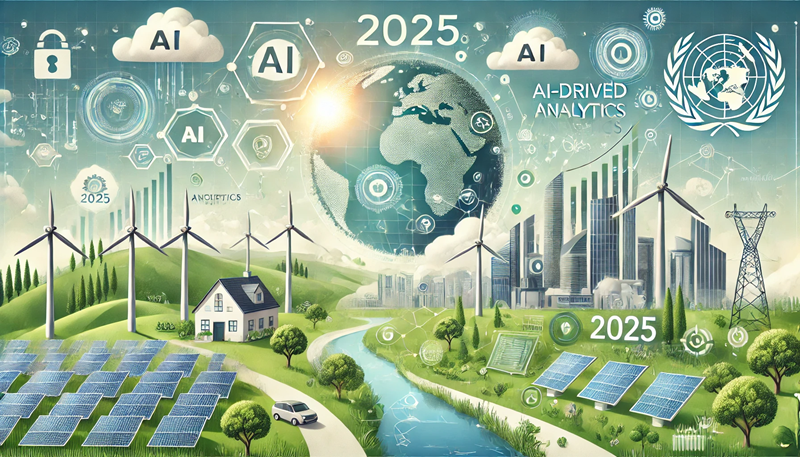The World Economic Forum (WEF) 2025 has placed climate change at the forefront of its agenda, emphasizing the urgent need for innovative solutions to combat one of the most significant challenges of our time. Leaders from across the globe gathered in Davos to discuss groundbreaking technologies, sustainable practices, and collaborative efforts to address the climate crisis. This blog explores how WEF 2025 is leveraging innovation to drive meaningful change.
Climate Change Innovation: A Key Focus at WEF 2025
The discussions at WEF 2025 underscored the pivotal role of technology and innovation in mitigating the effects of climate change. From renewable energy breakthroughs to AI-driven climate models, leaders emphasized solutions that are both impactful and scalable.
Key Highlights of the Agenda:
- Scaling up renewable energy adoption globally.
- Advancing carbon capture and storage technologies.
- Promoting green finance to support sustainable projects.
Technological Innovations Driving Climate Solutions
1. Renewable Energy: Accelerating the Transition
The push for renewable energy was a central theme at WEF 2025, with global leaders pledging to accelerate the shift from fossil fuels to sustainable energy sources.
Latest Trends:
- Solar and Wind Energy Expansion: Advancements in solar panels and wind turbines are making renewable energy more affordable and efficient.
- Hydrogen Fuel Technology: Green hydrogen is emerging as a game-changer for powering heavy industries.
- Energy Storage Solutions: Enhanced battery technologies are addressing the intermittency of renewables.
2. Artificial Intelligence for Climate Action
AI is playing a transformative role in fighting climate change, from optimizing energy consumption to predicting weather patterns.
Applications of AI Discussed at WEF 2025:
- Predictive Climate Models: AI-driven tools are enhancing the accuracy of climate predictions, enabling proactive measures.
- Smart Cities: AI is optimizing energy usage in urban areas, reducing emissions.
- Agricultural Innovations: AI-powered analytics are helping farmers adapt to changing weather conditions.
3. Carbon Capture and Storage (CCS)
Carbon capture technologies are gaining momentum as a critical component of climate mitigation strategies.
Innovations Highlighted:
- Direct air capture systems that extract CO2 directly from the atmosphere.
- Integration of CCS with industrial processes to reduce emissions.
- Scaling CCS projects in collaboration with private and public sectors.
Green Finance: Funding the Climate Fight
WEF 2025 emphasized the importance of green finance in driving climate innovation. Financial institutions and governments are increasingly aligning investments with sustainable goals.
Key Initiatives:
- Green Bonds: Investments in projects promoting renewable energy and conservation.
- Sustainability-Linked Loans: Financial products tied to a borrower’s environmental performance.
- Public-Private Partnerships: Collaborative efforts to fund large-scale sustainable projects.
Industry-Specific Innovations Tackling Climate Change
1. Agriculture and Food Systems
The agriculture sector is embracing innovation to reduce its carbon footprint and ensure food security.
Highlighted Solutions:
- Vertical farming and precision agriculture to optimize resource use.
- Development of climate-resilient crops.
- Reduction of food waste through AI-driven supply chain management.
2. Transportation
The transportation industry is undergoing a green transformation, driven by advancements in electric vehicles (EVs) and sustainable fuels.
WEF 2025 Highlights:
- Commitments to expanding EV infrastructure globally.
- Development of sustainable aviation fuels (SAFs).
- Adoption of shared and autonomous mobility solutions.
3. Construction and Urban Development
Sustainable urbanization was a major focus, with leaders highlighting eco-friendly construction practices and smart city technologies.
Trends in Urban Development:
- Adoption of green building materials.
- Implementation of energy-efficient smart grids.
- Urban planning that prioritizes green spaces and sustainable transit.
Challenges and Opportunities in Climate Innovation
Challenges:
- Scaling new technologies to meet global demand.
- Balancing economic growth with sustainability goals.
- Overcoming political and regulatory barriers.
Opportunities:
- Building resilient supply chains through innovation.
- Creating millions of green jobs in renewable energy and sustainable industries.
- Fostering international collaboration to achieve climate goals.
WEF 2025 Commitments to Climate Action
Global Net-Zero Goals
WEF 2025 reaffirmed commitments to achieving net-zero emissions by mid-century, with actionable roadmaps to accelerate progress.
Technology Sharing Initiatives
Leaders called for open collaboration and sharing of sustainable technologies to bridge gaps between developed and developing nations.
Youth and Community Engagement
Involving youth leaders and grassroots organizations was highlighted as a key strategy to drive bottom-up climate action.
